Share
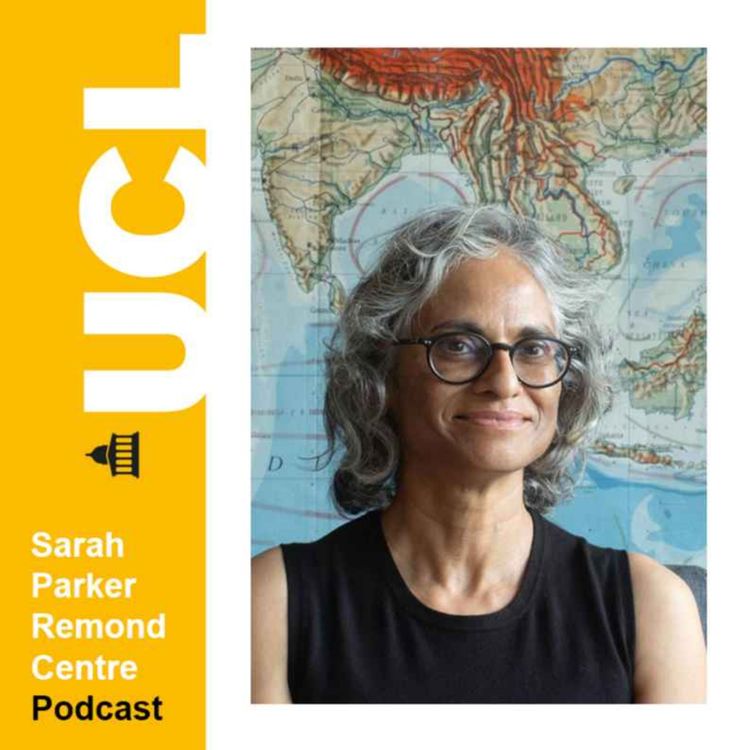
UCL Sarah Parker Remond Centre Podcast
In conversation with Nandita Sharma
Luke de Noronha welcomes Nandita Sharma, activist scholar and Professor of Sociology at the University of Hawaiʻi at Mānoa, to discuss borders, migration and citizenship in relation to the pandemic and climate catastrophes. Nandita addresses the demand for a planetary commons, and the need to live in a worldly space in which the fundamental political foundation is freedom from exclusion, freedom from dispossession and freedom from displacement.
Transcript: www.ucl.ac.uk/racism-racialisation/transcript-conversation-nandita-sharma
This conversation was recorded on 21st June 2021
Speakers: Luke de Noronha, Lecturer in Race, Ethnicity & Postcolonial Studies, UCL Sarah Parker Remond Centre // Nandita Sharma, Professor of Sociology, University of Hawaiʻi at Mānoa
Producer and Editor: Kaissa Karhu
More episodes
View all episodes
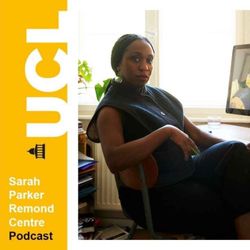
SPRC In Conversation with Edna Bonhomme
34:07|Gala Rexer talks to Edna Bonhomme, culture writer, historian of science, journalist, and author of “A History of the World in Six Plagues: How Contagion, Class, and Captivity Shaped Us, from Cholera to COVID-19” (2025). The conversation covers theoretical and methodological questions about the relationship between confinement and disease, Edna’s anti/inter-disciplinary approach to writing, health and illness in literature, and how the intersectional fight for prison abolition relates to struggles for health equality. This conversation was recorded in June 2025Speakers: Dr Gala Rexer, Leverhulme Fellow at the University of Warwick and Honorary Research Fellow at the SPRC // Dr Edna Bonhomme Producer: Gala Rexer and Trisha HartEditors: James Fox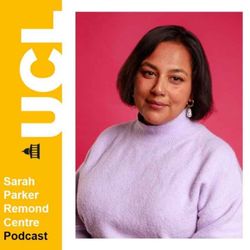
In conversation with Subhadra Das: Ten Lies, Ten Questions
35:23|In this podcast, Subhadra Das answers ten questions on ten lies that make up Western Civilisation. The conversation covers looting, the value of art, the history of statistics, remaking public history, repatriating stolen objects, and what museums and institutions could be doing with their zombies.Subhadra Das is a writer, historian, broadcaster and comedian who looks at the relationship between science and society. She specialises in the history and philosophy of science, particularly the history of scientific racism and eugenics. For nine years she was Curator of the Science Collections at University College London. She has written and presented podcasts and stand-up comedy shows, curated museum exhibitions, and has appeared on radio and TV. She is now working on a book about the golden age of detective fiction and the history of eugenics.Lara Choksey is Lecturer in Colonial and Postcolonial Literatures at UCL English, and Associate Faculty at the UCL Sarah Parker Remond Centre.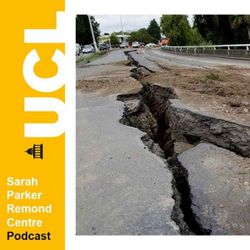
In Conversation: Geopolitics, catastrophe and trying to comprehend the world
27:22|Discussion of Gargi’s research and the new module designed to open conversations about how we might understand the interplay between global politics and the global economy in this moment of rapid realignment.Speakers:Gargi Bhattacharyya, Paige Patchin, Luke de Noronha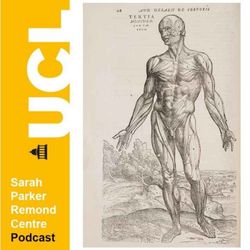
In Conversation: The politics of health in a time of climate crisis
25:41|Discussion of Paige’s research on questions of health, racism and why we must learn to understand the languages of the biological and the pharmaceutical if we are to grasp emerging technologies of racialisation.Speakers:Paige Patchin, Luke de Noronha, Gargi Bhattacharyya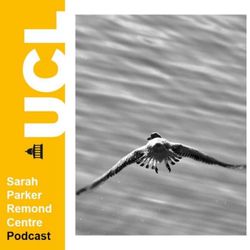
In Conversation: Movement, bodies and the question of race-making
29:38|Discussion of Luke’s research and why thinking about movement and bordering allows us understand emerging machineries of (perhaps) racialised violence.Speakers:Luke de Noronha, Paige Patchin, Gargi Bhattacharyya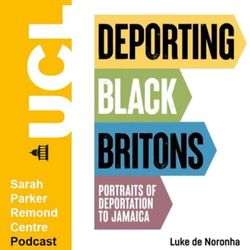
Short Takes: Deporting Black Britons – 5 Years On
12:30|In this Short Takes, Luke reads the preface to the paperback edition of Deporting Black Britons: Portraits of Deportation to Jamaica, published with Manchester University Press in June 2025.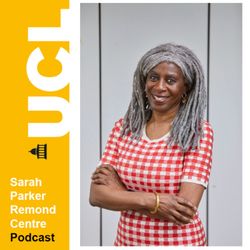
In conversation with Baroness Lola Young of Hornsey
38:43|Dr Clive Chijioke Nwonka is joined by Baroness Lola Young of Hornsey. Lola Young became one of the first Black Women members of the House of Lords in 2004. Raised in foster care in north London, she studied at the New College of Speech and Drama, then worked as an actress, before becoming Professor of Cultural Studies at Middlesex University. Later, she worked in arts administration before receiving an OBE in 2001 for services to Black British History, and becoming an independent crossbench member of the House of Lords. She is active in campaigns on modern slavery and ethical fashion. Her new book, Eight weeks: Looking Back, Moving Forwards, Defying the Odds (Penguin 2024) is a deeply moving memoir that tells the remarkable life story of Baroness Young from her childhood in foster care the House of Lords. Here, Clive and Lola they discuss her latest book, its themes and some of the ideas and experiences that have shaped Lola’s writing, scholarship, and public life.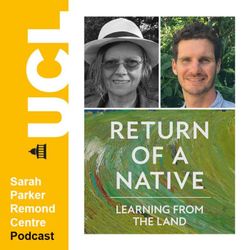
In conversation with Vron Ware and Jim Scown
49:10|Vron Ware and Jim Scown join Lara Choksey for a conversation about the histories that connect soil to colonialism and imperialism, and why these connections matter for agricultural production now and in the future. Vron and Jim reflect on links between militarism and the English countryside, online far-right content and the decline of rural mental health services, and what nineteenth-century soil science might tell us about national identity. Discussing Vron’s book, Return of a Native (Repeater 2022), and their shared interest in the organic chemist Justus von Liebig, the conversation addresses the many scales operating in our sense of the local, from the parochial to the planetary.
In conversation with George the Poet
48:59|Clive Chijioke Nwonka is joined by George the Poet. George is a spoken word artist, poet, rapper, podcast host and author, who has gained a following of over millions through his commentary and creative work addressing systemic injustice in the UK. Here, we discuss his latest book, Track Record, a fascinating memoir in intellectual exploration of race, belonging, music and injustice. Throughout this podcast, they’ll be discussing George’s latest book, its themes, their shared experiences growing up in North West London, and some of the ideas that formed and shaped George’s writing and intellectual work.Speakers: George the Poet, spoken-word artist, poet and podcast host of Have You Heard George’s Podcast // Dr Clive Chijioke Nwonka, Associate Professor in Film, Culture and Society and Faculty Associate in the UCL Sarah Parker Remond Centre.